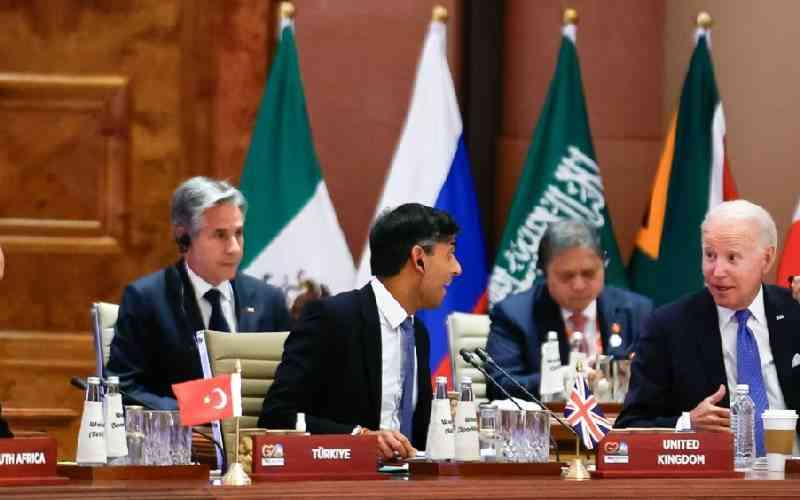×
The Standard e-Paper
Smart Minds Choose Us

U.S. Secretary of State Antony Blinken on Sunday hailed a consensus declaration reached at a summit of 20 of the world's largest economies that called for respecting sovereign states' territorial integrity.
The declaration at the now-concluded event denounced the use of force to seize territory but stopped short of condemning Russia for its war on Ukraine. Russia invaded the neighboring country in February 2022.